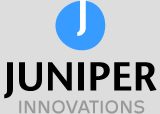Outsourcing and vendor management
Organisations use Juniper Innovations to help them outsource operations and manage vendors, to gain key advantages, such as:
Access to Expertise
Specialised Knowledge: Through our consultants, partners and networks bringing in-depth knowledge and experience in specific industries and functional areas, providing insights that might not be available to organisations in-house.
Best Practices: To leverage knowledge of applying practices and methodologies within sectors and functions.
Cost Savings
Economies of Scale: Using established relationships with vendors, which can lead to better pricing and terms.
Efficient Processes: Using experience to identify and implement cost-saving measures to reduce operational expenses.
Focus on Core Business
Determining non-core functions to outsource. This enables organisations to focus their resources and efforts on strategic activities and core competencies, enhancing overall business performance.
Risk Mitigation
Risk Assessment: Organisations receive a thorough risk assessment with options for mitigation strategies against potential risks associated with outsourcing and vendor management.
Compliance: Ensuring that vendors comply with relevant legal and corporate regulations and standards, reducing legal and regulatory risks.
Improved Vendor Management
Performance Monitoring: Establishing robust performance monitoring and management systems to ensure vendors meet agreed-upon service levels and quality standards.
Relationship Management: Using management techniques appropriate to the organisation’s culture and values, to manage vendor relationships effectively, fostering collaboration and resolving conflicts as efficiently and effectively as possible.
Scalability and Flexibility
Scalable Solutions: Scaling services up or down based on the organisation’s needs, providing flexibility to adapt to changing business environments.
Adaptability: Organisations receive adaptable solutions that can quickly respond to market changes and organisational growth e.g. for example through organisational enterprise design, resource models, contract flexibility, and on-demand technology support
Access to Advanced Technologies
Technological Expertise: Through our partners and networks, using tools and technologies for vendor management, providing insights and efficiencies that may not be available internally.
Innovation: Introducing innovative solutions and technologies to improve operational efficiency and effectiveness e.g. for instance from IT integration and automation, to artificial intelligence, machine learning and B2B platforms.
Objective Perspective
Unbiased Advice: Clients receive an external, objective perspective on their outsourcing and vendor management strategies, helping to identify opportunities and areas for improvement.
Fresh Insights: Receiving an external viewpoint can uncover issues and opportunities that internal teams might initially passover or overlook.
Change Management
Smooth Transition: Organisations receive business transformation support to manage the transition to outsourced models, ensuring minimal disruption and effective change management.
Employee Training: Receiving training and on-going support to internal teams to facilitate the adoption of new processes and systems.
Enhanced Negotiation Power
Contract Negotiation: Receiving industry knowledge to help negotiate contracts, ensuring favourable terms and conditions that benefit the organisation and support the type of relationship clients seek.
Vendor Selection: Support to provide rigorous selection processes to choose the best-fit vendors, enhancing the quality and reliability of outsourced services.
Continuous Improvement
Ongoing Optimisation: Helping organisations focus on continuous improvement, regularly reviewing and optimising outsourced operations and vendor performance.
Performance Metrics: Support to establish clear, measurable performance metrics to track and enhance vendor performance over time.
Juniper Innovations also support client organisations to avoid the potential pitfalls and failures that they may encounter:
Misalignment of Goals
Avoiding a misalignment between the 3rd party objectives and the client organisation’s strategic goals. If the outsourced party is focused on short-term cost savings, for example, it might neglect the client’s long-term strategic priorities and quality considerations.
Communication Gaps
Poorer communication between the organisation and outsourced vendors can lead to misunderstandings, incorrect implementation of strategies, and failure to meet expectations. Clear and continuous communication is crucial for success.
Loss of Control
Client organisations may feel they are losing control over critical functions when they outsource or use a 3rd party to manage outsourcing. This can be particularly problematic if partner organisations (in the supply chain) makes decisions that the organisation would not have made internally, or partners underperform or fail to meet expectations.
Security and data privacy concerns
Sharing sensitive data or intellectual property with third-party vendors can introduce security and data privacy risks if proper safeguards and contractual agreements are not in place.
Dependency on a 3rd party
Over-reliance on a partner can create a dependency, where the client organisation struggles to manage operations or vendors without ongoing consultancy or 3rd party support. This can lead to higher long-term costs and reduced internal capability.
Cultural Mismatch
A mismatch between the organisation’s culture and a vendor or outsourced partner’s approach can lead to resistance from internal teams. If a partner’s methods are not well-integrated into the organisation’s culture, it can result in poor adoption and execution.
Inadequate Knowledge Transfer
Effective knowledge transfer is essential for sustainable operations. If an outsourced partner or consultancy does not adequately transfer the required routine knowledge and skills to the organisation’s staff, it can lead to operational difficulties on an on-going basis or when engagements ends.
Hidden Costs
Initial cost savings can be offset by hidden costs such as additional consultancy fees, costs of transition, vendor lock-ins and potential penalties from poorly negotiated vendor contracts. Organisations need to be aware of the total cost of engagement, not just the upfront consultancy fees.
Intellectual property and knowledge transfer risks
There is a risk of unintended knowledge transfer or loss of intellectual property when outsourcing critical operations or processes to third-party vendors. Proper safeguards and contractual agreements need to be in place.
Suboptimal Vendor Selection
If vendors are selected based on relationships or incentives rather than the best fit for the organisation, it can lead to suboptimal vendor performance. Transparency in vendor selection processes is crucial.
Conflict of Interest
There is a risk of conflict of interest where any 3rd parties involved in the outsourcing process have financial ties to specific vendors. This can bias their recommendations and compromise the quality and impartiality of their advice.
Performance Measurement Issues
If the client organisations do not establish clear, measurable performance metrics, it can be difficult to assess the success of the outsourcing arrangement. Ambiguous metrics can lead to dissatisfaction and perceived failure.
Regulatory and Compliance Risks
Outsourcing can introduce regulatory and compliance risks if the vendors do not adhere to relevant laws and standards e.g. in different countries and geographies. To manage this, robust processes to ensure compliance must be designed and established. Client organisations must monitor these diligently.
Resistance to Change
Internal resistance to changes imposed by 3rd parties and partners can undermine the success of outsourcing initiatives. Employees may fear job loss or be sceptical about new processes, leading to pushback and reduced effectiveness.
Failure to Achieve Expected Benefits
There is always a risk that the expected benefits, such as cost savings, efficiency gains, or improved service quality, do not materialise. This can happen due to poor implementation, unrealistic expectations, or other external factors.
By being aware of these potential failures, our clients can take proactive steps to mitigate risks, ensure alignment with their strategic goals, and establish robust governance and communication frameworks.
By leveraging the advantages above, client organisations can enhance their operational efficiency, reduce costs, mitigate risks, and achieve better outcomes from their outsourcing and vendor management efforts.
If you’d like to get in touch, we’re happy to share ideas and chat..
“If there is a thing that we cannot do more efficiently, cheaper or better than a competition, there is no point in doing it further – we should hire the one who does it better than we do” – Henry Ford

